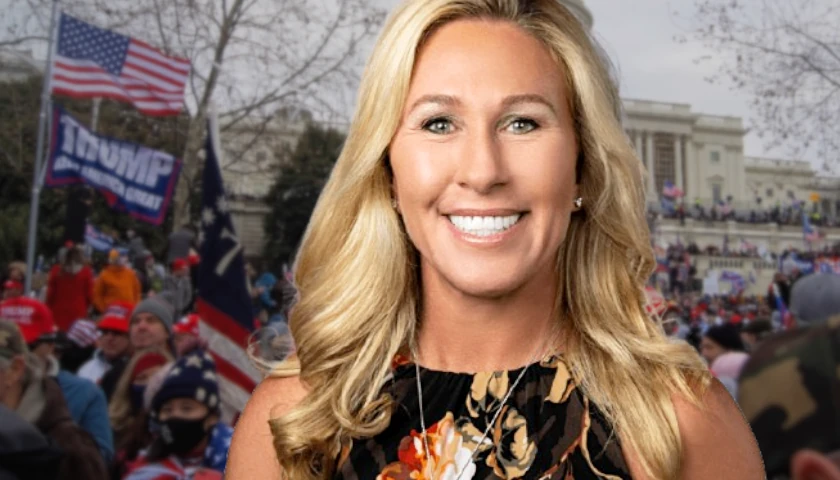by Misty Severi
The Federal Bureau of Investigation (FBI) has come under renewed heat after admitting it had been previously notified that the suspect in a second assassination attempt against former President Donald Trump illegally had a gun due to his status as a convicted felon.
The missed opportunity involving Ryan Wesley Routh is not the first time the bureau was notified about an individual who went on to commit, or attempted to commit, a major crime.
The FBI told Just The News in a statement on Tuesday that it receives thousands of tips every day, which is fielded through its National Threat Operations Center (NTOC) in West Virginia.
The tips involving a threat to life, serious bodily injury, or significant violent action are treated as the highest priority and referred to the appropriate FBI field office or other relevant office.
Through this process, the FBI was notified about the dangers that certain people could pose at least five times in recent years, and those people went on to commit a mass shooting, or attempted to kill Trump.
Here is a look at those incidents and what the FBI admitted to knowing before the events.
Second Trump assassination attempt
The most recent event took place on Sunday, when 58-year-old suspect Ryan Wesley Routh allegedly aimed an AK-47 through a fence at Trump’s golf course before being spotted by a Secret Service agent.
But Routh, who was charged with possession of a firearm as a felon and possession of a firearm with an obliterated serial number, had been flagged to the FBI back in 2019.
“I can also share with you that he was the subject of a previously closed 2019 tip to the FBI where it was alleged he was a felon in possession of a firearm,” Special Agent in Charge of the FBI’s Miami Field Office Jeffrey Veltri said Monday. “In following up on the tip, the alleged complainant was interviewed and did not verify — I repeat, did not verify — providing the initial information. The FBI passed that information to local law enforcement in Honolulu.”
Routh was previously convicted of having a weapon of mass death and destruction in North Carolina in 2002, according to federal prosecutors.
Georgia school shooting
Prior to the second assassination attempt on Trump, the FBI admitted it was notified about online posts from a student who went on to commit a school shooting in Georgia earlier this month, which resulted in the deaths of four people and injured nine others.
Social media posts that were reportedly made by Colt Gray were flagged to the FBI’s National Threat Operations Center in May 2023, after he allegedly made online threats about committing a school shooting.
The FBI said that it did not have enough evidence at the time to arrest the then 13-year-old, but the FBI Atlanta field office referred the matter over to the Jackson County Sheriff’s Office, who interviewed Gray and his father.
Gray’s father has also been charged in relation to the shooting for allegedly allowing his teenage son to have access to weapons.
Colorado LGBT club shooting
The FBI was also notified about the convicted shooter at an LGBT club in Colorado Springs in 2022, before the shooting, which killed five people and injured 19 others.
The FBI said concerns regarding Anderson Lee Aldrich were first flagged by family members in June 2021, more than a year before the shooting took place. He was arrested in June 2021 for threatening to kill family members, but the federal case was closed in July after state charges were pending against him.
But the state charges were eventually dropped, according to the Associated Press.
Parkland shooting
Nikolas Cruz, who would go on to kill 17 people at the Marjory Stoneman Douglas elementary school in Parkland, Florida, should have been on the FBI’s radar approximately six weeks before the 2018 shooting took place.
The FBI admitted it received a tip about Cruz from a person close to him on Jan. 5, 2028 but the bureau failed to follow up. The individual left information on a public tip line about the convicted shooter’s s “gun ownership, desire to kill people, erratic behavior, and disturbing social media posts, as well as the potential of him conducting a school shooting,” NBC News reported at the time.
The bureau said the tip should have been referred to the Miami field office for further evaluation, but the procedure was not followed. FBI Director Christopher Wray also acknowledged the error.
“We have spoken with victims and families, and deeply regret the additional pain this causes all those affected by this horrific tragedy,” Wray said.
Orlando gay night club shooting
The man behind a devastating attack on a gay night club in Orlando, Fla., in 2016, had been on the FBI’s radar for three years, but was not considered a threat, and was never the target of a formal investigation. The shooter, Omar Mateen, went on to kill 49 people and injured 53 others.
Former FBI Director James Comey claimed in 2016 that the FBI had spoken to Mateen in 2013 about inflammatory comments he made to co-workers. He was interviewed by the FBI again in 2014 after he was connected to an American suicide bomber in Syria. But both times he was not considered dangerous.
Mateen, who was killed by local police in a shootout, reportedly confessed to the shooting in a phone call to 911 before his death.
– – –
Misty Severi is an evening news reporter for Just The News. You can follow her on X for more coverage.
Photo “FBI Crime Scene” by Tim Pierce CC2.0







